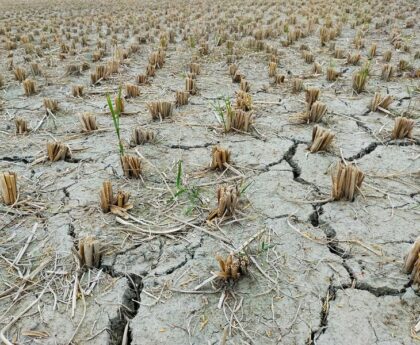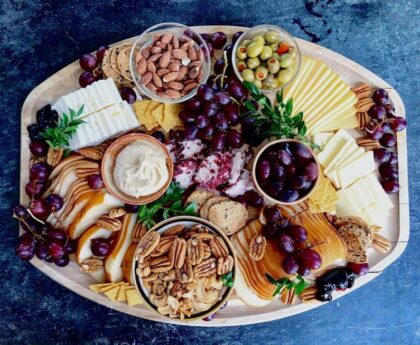Garma Festival: The largest gathering of First Nations people had humble beginnings
The Origins of Garma
The Garma Festival, now in its 23rd year, has become the largest gathering of First Nations politics and culture in Australia. Held annually at Gulkula in North-East Arnhem Land, the festival brings together Indigenous and non-Indigenous leaders to discuss the health and wellbeing of First Nations people. The word “Garma” means “two-way learning process” in Yolŋu Matha, reflecting the intention behind the festival’s creation in 1999.
The first Garma Festival was a small gathering attended by immediate family members, including elders and decision makers of the Gumatj clan of the Yolŋu people. It served as a bush parliament, where important issues were discussed and a road map for improving education for Indigenous communities was established. The festival provided an opportunity for the community to reclaim what had been taken from them and work towards a better future.
One of the key figures present at the first Garma Festival was Murphy Yunupiŋu, who dedicated his life to education and founded the Dhupuma Barker School in 2021. The school has seen high success rates in teaching children in both English and Yolŋu Matha, the first language of the Yolŋu people. Murphy’s dedication to education has had a lasting impact on his community and is a testament to the power of the festival’s origins.
A Celebration of Culture and Legacy
Today, the Garma Festival has evolved into an agenda-setting political event that attracts thousands of people from across the country. The festival opens with a traditional welcome dance called the Buŋgul, where Yolŋu songmen summon all those present to the ceremonial grounds. However, this year’s festival is bittersweet, as it marks the first year without one of its co-founders, the prominent Yolŋu elder and land rights campaigner Yunupiŋu, who passed away in April.
Yunupiŋu’s life and legacy will be remembered in a memorial during the festival, which will kick off the four-day cultural event. His contributions as the inaugural chairman of the Northern Land Council and his involvement in drafting the Yirrkala Bark Petitions have had a significant impact on the Aboriginal land rights movement. The 60th anniversary of the Yirrkala Bark Petitions, which protested against the government’s approval of a bauxite mine on Yolŋu country, will also be commemorated at this year’s Garma Festival.
A Platform for Indigenous Voices
As the referendum for an Indigenous Voice to Parliament approaches, discussions at this year’s Garma Festival will focus on constitutional recognition and economic empowerment. Over the years, Garma has provided a platform for prime ministers to outline their vision for Indigenous affairs. This year, Anthony Albanese is expected to make a formal address, but he has clarified that he will not announce the official voting date for the referendum at the festival.
The Indigenous Voice to Parliament referendum holds significant importance for the future of Indigenous communities in Australia. If the campaign is successful, the Voice will be dedicated to the memory of Yunupiŋu, whose absence at this year’s festival will be deeply felt. The federal government has also announced funding support for the Yothu Yindi Foundation, which hosts the Garma Festival, further emphasizing the importance of the festival as a platform for Indigenous voices.
Looking Towards the Future
The Garma Festival continues to be a vital celebration of Indigenous culture, a place where Australia comes together to forge pathways for the future. As Djawa Yunupiŋu steps into his late brother’s shoes as the leader of the Gumatj clan and carries on his vision for Garma, he emphasizes the importance of thinking about the future and what it holds.
The festival highlights the ongoing journey of Indigenous communities, from overcoming challenges to celebrating achievements. It serves as a reminder of the rich cultural heritage and strong sense of community that Indigenous peoples have preserved for generations. As the festival grows and evolves, it is essential to ensure that the voices and needs of First Nations people are heard and respected, and that efforts continue to be made towards reconciliation, land rights, and empowerment.
In conclusion, the Garma Festival is not just a gathering; it is a symbol of the resilience, strength, and vibrancy of First Nations cultures. It is a testament to the power of coming together, sharing stories, and working towards a more inclusive and equitable future for all Australians.

<< photo by Emre Akyol >>
The image is for illustrative purposes only and does not depict the actual situation.
You might want to read !
- Indigenous Australia Honors Legacy of Yunupingu with First Garma Festival Without its Iconic Leader
- Exploring the Complex Legacy and Ongoing Controversy of Bruce Pascoe’s Dark Emu
- Embracing the Spirit of NAIDOC Week: Celebrating ‘Black Christmas’ in Melbourne
- The Importance of Investing $310,000 to Celebrate NAIDOC Week Elders
- The Journey of Pani Puri Day: Celebrating the Adventurous Delicacy Down Under
- Indigenous Australian Cultural Celebration: Embracing NAIDOC Week – A Guide to Honoring ‘Black Christmas’ in Melbourne
- Paddling in Tradition: Exploring China’s Vibrant Dragon Boat Festival
- Sizzling Hailey stuns in a slinky cocktail dress at Giorgio Baldi: A vision of elegance and allure
- Journey of Brilliance: Unforgettable Moments in Diamond History; England’s Dream Star Shines Bright
- Bastille Bonanza Down Under: Exploring Australia’s Celebrations of Bastille Day 2023
- “Eid Mubarak 2023: Embracing Diversity in Greetings Across 15 Cultures”
- Exploring the Cultural Bridge: Swans to Host China-Themed Match This Month
- “Exploiting Indigenous Art: Unveiling the Dangerous Misinformation Surrounding an Aboriginal Artist’s Painting”
- Diving into Baldur’s Gate 3: Unveiling the Ultimate Builds and Essential Strategies
- “Heartstopper Season Two: Expanding LGBTQ+ Representation in Teen Dramas”
- Roblox Welcomes Cirque du Soleil Tycoon: Uniting Digital Creativity and Immersive Entertainment
- “Key Agendas: Linda Burney’s Vision for the Voice in Australia”




